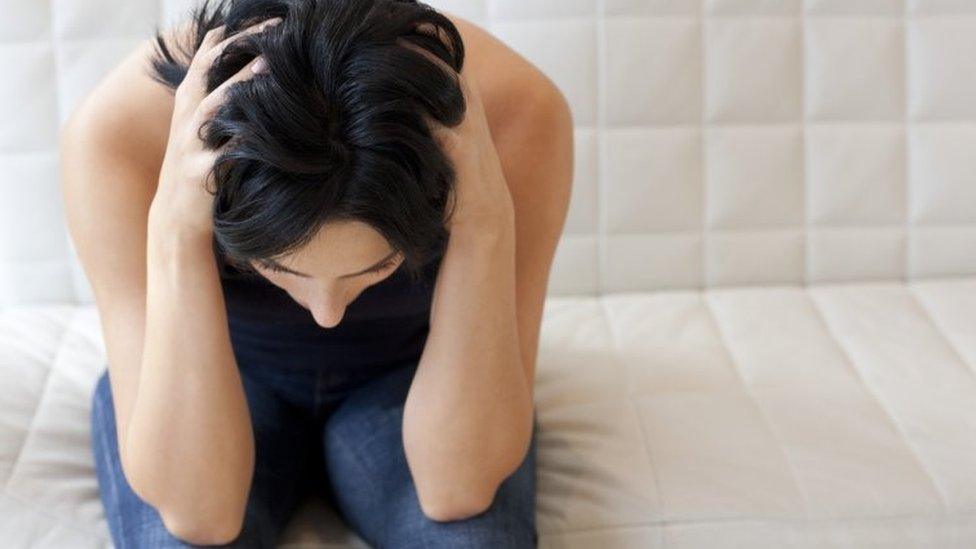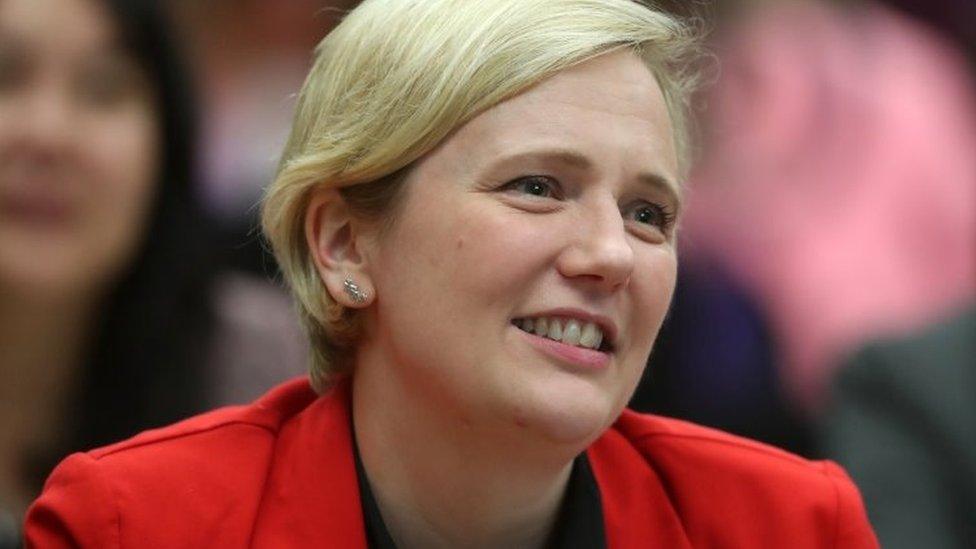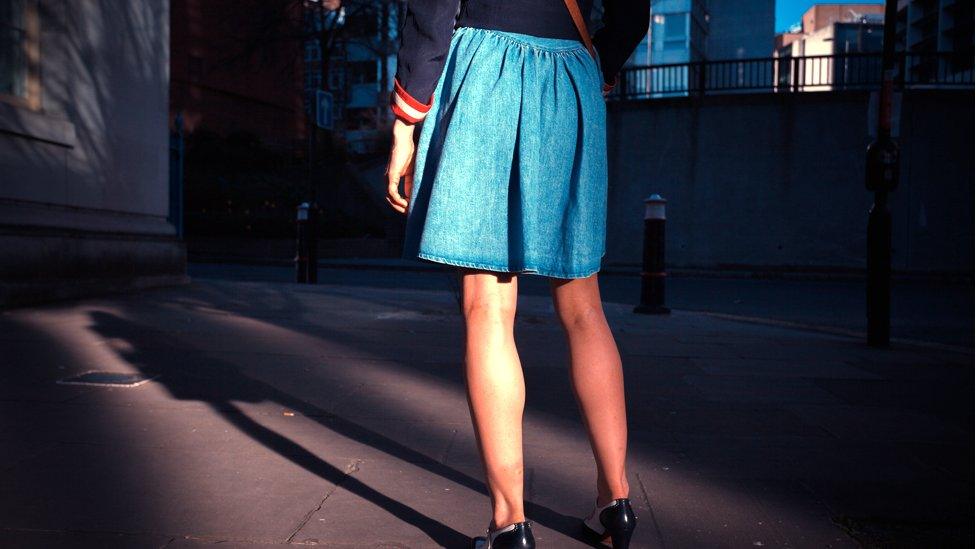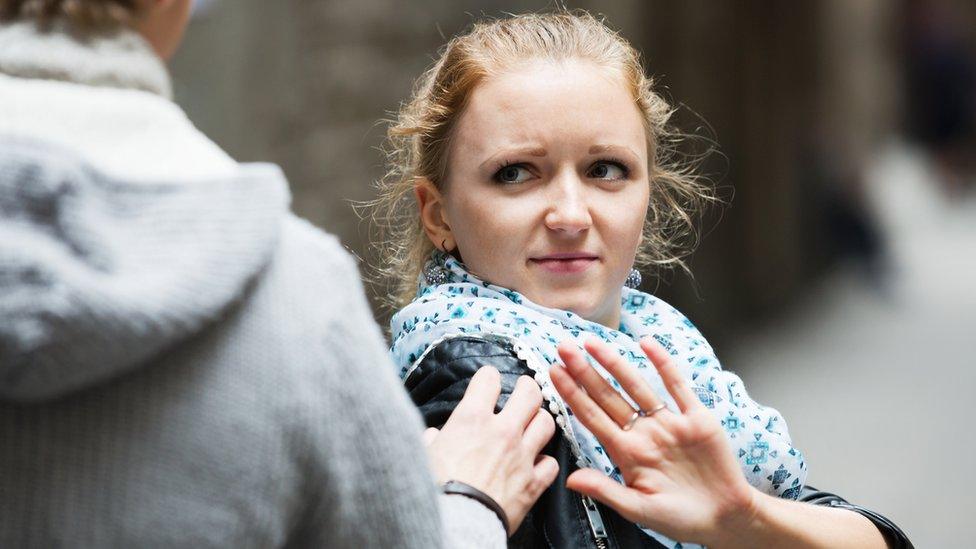Domestic Abuse Bill: Misogyny should be treated as a hate crime, say MPs
- Published

The change would require police to record misogyny as a hate crime - including in domestic abuse cases
A group of women MPs and charities are urging the government to treat misogyny as a hate crime within the government's new domestic abuse laws.
Their amendment to the Domestic Abuse Bill would require police to record and track crimes motivated by misogyny.
Supporting the move, charity Citizens UK said it will allow forces to identify patterns and perpetrators.
The government said it will respond to amendments to its "game changing piece of legislation" in the Commons.
Nottinghamshire Police became the first force to treat misogyny as a hate crime in 2016.
But since then "a few" police forces have followed suit voluntarily and there are more than 30 police forces that do not classify misogyny as a hate crime, Citizens UK said.
Misogyny involves showing dislike, contempt or ingrained prejudice against women.
A statement from Citizens UK and the coalition of campaigners - including Refuge and Women's Aid - says this approach will "not create any new crimes but would provide critical data on the link between hostility to women and the abuse and harassment women experience".
It says evidence from the five police forces already undertaking this approach shows it increases the confidence of women to report abuse and "positively changes how violence against women and girls is tackled".
'Time for change'
The so-called "amendment 84" has been put forward by Labour MP Stella Creasy, Lib Dem Christine Jardine and Plaid Cymru's Westminster leader Liz Saville Roberts. The Domestic Abuse Bill, external is currently at the committee stage in the House of Commons.
Speaking about the amendment, Charlotte Fischer from Citizens UK said recording misogyny as a hate crime "supports women to be able to name the experiences they have, and to know they will be believed when they do so".
"By recognising how misogyny intersects with anti-black racism, anti-Semitism, Islamophobia, homophobia and other forms of discrimination we also can also map and understand how other forms of abuse affect women in specific and intersectional ways," she said.
Labour MP Ms Creasy said it was "time for change", adding: "Misogyny is so much part of everyday life that we overlook the harm it does - at the expense of tackling the root causes of violence against women."

Stella Creasy is among the MPs who are calling for misogyny to be made a hate crime
Lib Dem MP Ms Jardine said: "Misogyny in far too many instances remains unnoticed and unrecorded.
"We must do everything in our power to tackle violence against women, and the requirement to record misogynistic crime and how it interacts with domestic abuse is a key step to tackling gender inequality."
The Home Office said the bill was a "game changing piece of legislation that will transform how we deal with this horrific crime".
"We will ensure that victims of domestic abuse and their families are supported and protected while perpetrators face justice," a spokesperson said.
"The government will set out its position when responding to these amendments in the committee stage of the bill."
In 2018, the Law Commission announced a review of hate crime, but it has been delayed because of the coronavirus pandemic.
The consultation into how to incorporate misogyny into new legislation on hate crime is scheduled to begin in July 2020.
- Published6 September 2018

- Published13 July 2016
